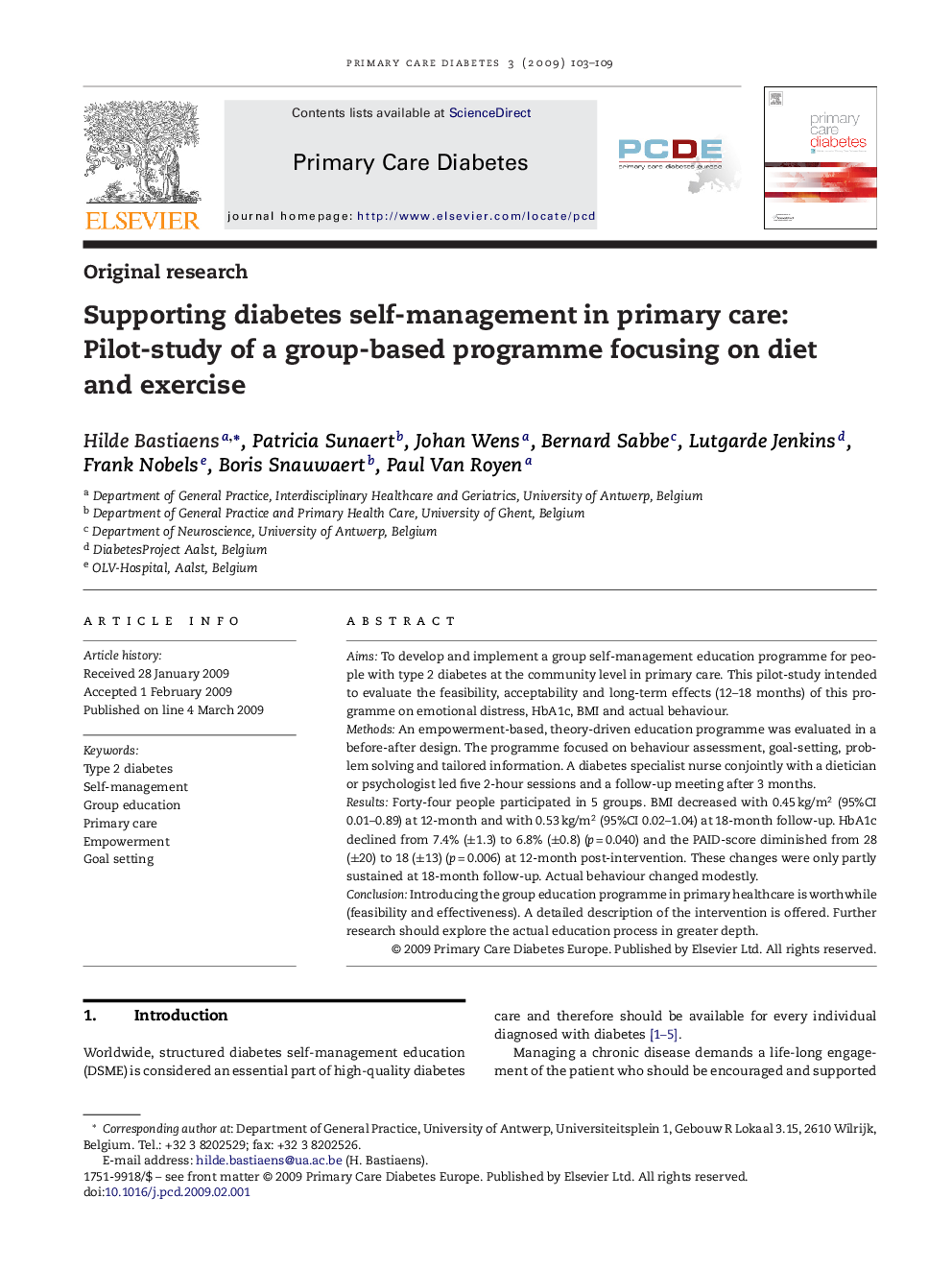| Article ID | Journal | Published Year | Pages | File Type |
|---|---|---|---|---|
| 2680917 | Primary Care Diabetes | 2009 | 7 Pages |
AimsTo develop and implement a group self-management education programme for people with type 2 diabetes at the community level in primary care. This pilot-study intended to evaluate the feasibility, acceptability and long-term effects (12–18 months) of this programme on emotional distress, HbA1c, BMI and actual behaviour.MethodsAn empowerment-based, theory-driven education programme was evaluated in a before-after design. The programme focused on behaviour assessment, goal-setting, problem solving and tailored information. A diabetes specialist nurse conjointly with a dietician or psychologist led five 2-hour sessions and a follow-up meeting after 3 months.ResultsForty-four people participated in 5 groups. BMI decreased with 0.45 kg/m2 (95%CI 0.01–0.89) at 12-month and with 0.53 kg/m2 (95%CI 0.02–1.04) at 18-month follow-up. HbA1c declined from 7.4% (±1.3) to 6.8% (±0.8) (p = 0.040) and the PAID-score diminished from 28 (±20) to 18 (±13) (p = 0.006) at 12-month post-intervention. These changes were only partly sustained at 18-month follow-up. Actual behaviour changed modestly.ConclusionIntroducing the group education programme in primary healthcare is worthwhile (feasibility and effectiveness). A detailed description of the intervention is offered. Further research should explore the actual education process in greater depth.
